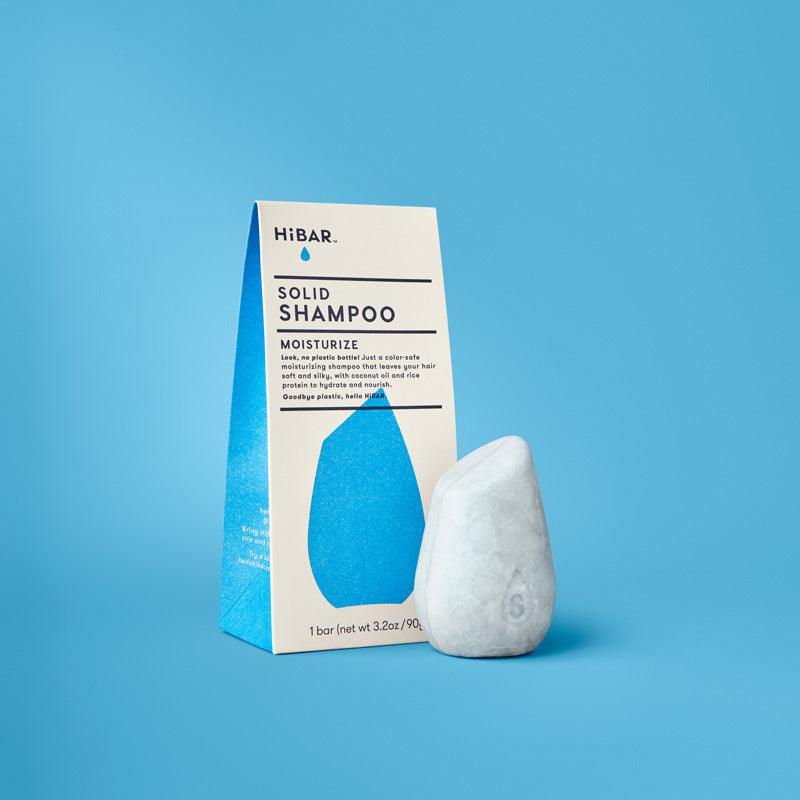We can't find the internet
Attempting to reconnect
Something went wrong!
Hang in there while we get back on track
When you buy through links on our site, we may earn an affiliate commission. Learn more
shampoo
by Sarah Masters
Shampoo
When thinking about making your night time routine more sustainable, shampoo probably isn’t the first thing that comes to mind. However, this basic part of human hygiene has more impacts on the environment than you might think. The biggest problem is with the plastic that shampoo bottles are made out of. While most bottles are recyclable, the sad reality for the United States is that most plastic put in the recycling bin still ends up in landfills. Only 5% of plastic waste was recycled in 2019, with 86% going to landfills. It can take up to 450 years for these plastic bottles to decompose, causing long-term pollution and the release of greenhouse gases as the bottles are heated by sunlight. Another impact of shampoo is the chemicals in the shampoo itself. Sulfates, found in most conventional shampoos, can damage ecosystems by acidifying waterways and soil. Low levels of parabens can kill coral, and some phthalates are toxic to algae and other aquatic life. So, how could shampoo be made more eco-friendly? There’s a whole market of sustainable shampoos out there, everything from shampoo bars to refill services.
It’s also important to note that out of all the life cycle stages of shampoo, the use phase actually has the biggest environmental impacts. Taking a shower requires high amounts of energy to heat the water, energy that is made by carbon-releasing processes (unless your home is powered by renewable energy). Therefore, one of the best things consumers can do to reduce their carbon footprint when it comes to washing their hair is take shorter showers. While you take a shorter shower, use a more eco-friendly shampoo while you’re at it:
What to look for
Since the plastic bottles that shampoo usually comes in have such negative effects on the environment, look for plastic-free options like shampoo bars. These bars work just like soap bars and contain concentrated shampoo that’s released when put under water. Most bars yield just as much if not more uses than an average bottle of shampoo. The ones linked above come in packaging that is plastic-free and either fully compostable or recyclable. Aside from avoiding plastic waste, shampoo bars are also favorable because they have a lower shipping impact due to their small size.
When looking for eco-friendly shampoo, it’s also important to avoid toxic chemicals like the ones mentioned above, such as sulfates, phthalates, parabens, and triclosan. Another substance to steer clear from if possible is palm oil, as it’s linked to mass deforestation and human rights violations.
Avoiding plastic doesn’t have to mean using a shampoo bar. There are refill services out there that sell shampoo in plastic-free packaging, ship you refills, and pay for you to send back your empty bottle which they reuse. This creates a circular economy, eliminating any waste from packaging. Plaine Products’ service uses bottles made out of aluminum, which is essentially able to be recycled an infinite amount of times. This is much better than plastic, which degrades significantly in quality each time it’s recycled.
Sources
- https://www.ethicalconsumer.org/health-beauty/shopping-guide/ethical-shampoo
- https://setac.onlinelibrary.wiley.com/doi/pdf/10.1002/ieam.4064
- https://www.leafscore.com/eco-friendly-bath-products/best-eco-friendly-organic-shampoo/
- https://www.almostzerowaste.com/eco-friendly-shampoo-and-conditioner-bars/
- https://www.sciencedirect.com/science/article/abs/pii/S0921344922002087
- https://science.howstuffworks.com/science-vs-myth/everyday-myths/how-long-does-it-take-for-plastics-to-biodegrade.htm
- https://ww2.arb.ca.gov/resources/sulfate-and-health
- https://www.ewg.org/what-are-parabens
- https://palmoilalliance.eu/palm-oil-deforestation/
- https://www.amnesty.org/en/latest/news/2016/11/key-facts-about-palm-oil/
Want more? Become an Intentful Consumer!
Get updates on new research and products. Upvote, comment, and add suggestions to help others.




